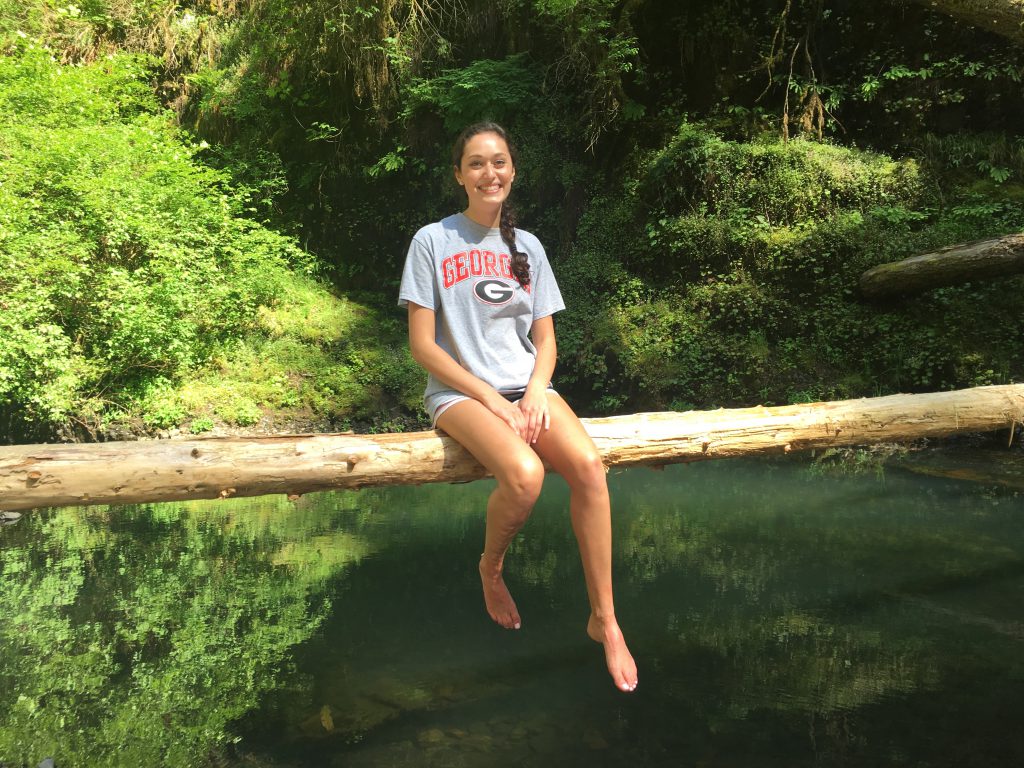
I entered the sustainability certificate alongside my public relations degree in pursuit of learning what I would need to know to use strategic communication skills to foster win-win situations between different organizations.
Eager to learn how the human race can exist in harmony with the natural environment while also fostering a strong economy, I took classes such as Design and the Environment and Computer Modeling and Sustainability. Though coursework like this, I gained knowledge in diverse fields ranging from corporate sustainability to modeling population growth.
I found that there are ways to boost micro and macro economies while also strengthening human health! Driving the management of projects that achieve these results has become a passion of mine. I’ve found that most often, when achieve one sustainable goal, we also achieve many others. It’s less of a win-win situation and more of a win-win x50 type of situation.
For example, I was amazed to learn that studies have shown empowering women and giving them access to education is directly related to mitigating poverty, which is directly related to mitigating hunger.
Learning about the 17 Sustainable Development Goals created by the United Nations taught me that economic health, reaching a state of equality for all and fighting poverty are integral sustainable goals. Sustainability initiatives I’ve witnessed throughout my time at UGA (including my capstone project and internship at the UGA Office of Sustainability) have shown that sustainability efforts can improve a businesses’ bottom line and its relationship with its stakeholders.
When a business embarks on a sustainability project, I do not see that as a Corporate Social Responsibility effort. Instead, it should be part of a Shared Value initiative, where the business operates in harmony with its environment in a way that achieves its monetary goals while also supporting the community.
While my coursework in the Sustainability Certificate was valuable, it’s my experiences outside of the classroom that allowed for remarkable learning experiences that will aid in a future sustainability career.
I opted to work on a side project during one of my three marketing-communication internships at Intel in order to learn about the role environmental health plays in the technology world. I volunteered to help the head Environmental Health and Safety engineer communicate with employees about the complex process of disposing of hard-to-recycle materials (e-waste such as keyboards, batteries and monitors).
In this role, I spoke to the admins and employees to learn where the knowledge gaps were and visited different disposal centers to identify the areas where employees were disposing of waste incorrectly. In the end, I developed a design for a new webpage on the Intel Employee Portal, designed new posters and decided their placement, wrote an email for admins to send employees and designed an electronic poster to be displayed on TVs throughout the building. This experience and my other tasks at Intel taught me how to research technical subjects and interview engineers in order to translate technical jargon into knowledge everyone can understand. These skills will be useful if I need communicate about scientific phenomena or complex business processes during a future sustainability career.
During an internship in Santiago, Chile, with the energy company Enel, I met Antonella Pellegrini, a manager of sustainability and community relations. She taught me about a Shared Value project she started at Enel named Barefoot College where grandmothers in small villages of South and Central America are trained to install and maintain solar panels. I have remained fascinated in this win-win concept ever since, and I hope to lead a similar project one day.
Along with studying public relations and sustainability, I worked as a reporter, then an editor and then the managing editor of The Red & Black, the college newspaper with the highest circulation in the state of Georgia. I was able to report on, photograph and edit many stories related to sustainability such as covering the biggest pet peeves of employees at the Athens-Clarke County Recycling Facility and Athens’ residents opinions on GMOs. Through this work, I realized the importance of pairing stories with quality visuals, the communication laws reporters must follow and the power of a well-researched truth.
Also, this work taught me the perspective of the media and the intricacies of the relationship they have with public relations specialists. I later used pitching, interviewing and the inverted pyramid method of writing in my public relations coursework and sustainability capstone. My experience at the newspaper was invaluable for a future in strategic communication and sustainability.
The last work experience of my college career was as the strategic communications intern for the UGA Office of Sustainability. I was able to manage the relationship between the Office of Sustainability and the greater community in a consulting role, in the office’s representation in campus events, blog posts, photography and a weekly newsletter.
After my sustainability coursework, five internships during my college career and a managing editor position at a local media source, I now feel confident that I am equipped to help corporations forge the connections necessary to become ambassadors of sustainability, making the world a better place through the products they create or sell.
